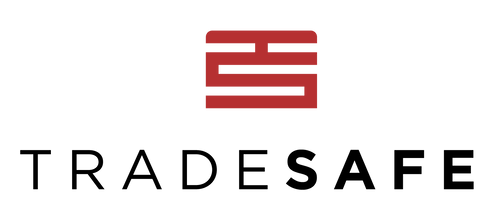
Net Metering
In 1983, Minnesota mandated the first-ever state net metering law to encourage distributed generation assets, specifically solar electric systems. Perceiving the benefits of shifting energy production to renewable sources, other states followed suit in creating their own net metering programs, including Nevada.
Lawmakers established the Nevada net metering program in 1997 to motivate state residents to invest in solar energy and gain lower electricity bills. Basically, the idea behind the program is that utility companies will purchase excess power from solar users at the retail rate. The utility companies will only charge the solar customer for their net energy use. In other words, these customers will not pay for the costs of harnessing and distributing electricity.
Critics of the Nevada net metering program argued that this policy gives an unreasonable advantage to solar users. The Citizens for Solar and Energy Fairness coalition is one of the groups concerned about the unfairness that net metering, as well as other policies supporting solar energy, bring to homeowners and small businesses who could not afford to invest in solar energy systems.
The Citizens for Solar and Energy Fairness coalition and supporters of energy fairness have three fundamental fairness arguments against policies supporting solar energy systems. This article presents these arguments and shows that the coalition is not against solar energy systems but the unfairness that policies bring towards consumers and utilities.
Customers Without Solar Energy Systems

“We do not believe it is fair that working families without rooftop solar are forced to pay higher electricity bills every month in order to pay for the subsidies given to customers with rooftop solar,” the Citizens for Solar and Energy Fairness coalition said.
Unfairness towards customers without solar energy systems is one of the most common arguments against policies favoring distributed source electricity. When utility consumers install rooftop panels and apply for net metering programs, the amount of electricity they consume from electric grids significantly decreases. This decline translates to lower electricity bills. Nevertheless, these users still use grid-sourced electricity for backup power.
In time, utilities would find ways to increase electricity rates to maintain their basic grid infrastructure while providing less power. As a result, the power bills of customers without distributed energy systems will rise as caused by these rate increases. On the other hand, the solar users who still rely on the grid will pay far less than those without distributed electricity systems.
The Citizens for Solar and Energy Fairness coalition believes that electricity rates should be fair for both customers with solar panel systems and those without. A comprehensive net metering program that addresses this unfairness is what the coalition campaigns for.
Low-Income Utility Consumers
David Owens, former executive vice president of the Edison Electric Institute, argued that “Low-income customers can’t put on solar panels… so why should a low-income customer have their rates go up for the benefit of someone who puts on a solar panel…”
Buying or investing in solar energy panels is not cheap. The cost barriers prevent low-income consumers from installing their own rooftop panels, leaving them with no other option but to pay higher utility rates. On the other hand, the wealthier consumers have the resources to invest in solar energy systems. This unfairness towards low-income utility customers is another common argument against net metering programs and other policies favoring distributed energy use.
Another significant issue raised by the coalition is that some solar companies are using the net metering programs to lock low-income consumers into 20-year leases to borrow equipment from them. Worse, usually, the equipment does not always pass initial safety inspections and is not always repaired when needed.
The coalition campaigns for a net metering program that ensures both the wealthy and the poor have access to affordable electric power, solar-based or not.
Utilities

NV Energy, the major public utility that generates, transmits, and distributes electricity in Nevada, is part of the Citizens for Solar and Energy Fairness coalition. Aside from customers without solar energy systems, and low-income utility consumers, the net metering program poses greater unfairness to utility companies like NV Energy.
The principle behind net metering is that the solar consumer will be able to “sell” their excess power to utility companies at a retail rate. In other words, the consumer will directly compete with utility companies. As more consumers, especially wealthy ones, acquire solar power systems and compete with utility companies, the utilities’ stable earnings are more likely to decline.
Like a domino effect, as utility earnings decrease, the higher utility rates will be, resulting in higher bills for non-solar consumers. The energy fairness group, backed by NV Energy, campaigns to prevent this scenario.
“Energy Rates Should Be Fair For Everyone”
In general, solar energy and other renewable electricity resources benefit consumers and the environment. However, net metering programs should ensure that power rates are fair for everyone. The Citizens for Solar and Energy Fairness coalition’s campaign for fair energy rates is not against solar energy systems but against unfairness caused by net metering programs that neglect the needs of many consumers and utilities in Nevada.
Whether consumers depend on distributed energy or electric grids for their power needs, it is important to perform electrical maintenance to help ensure safety either at home or in the workplace. TRADESAFE offers a variety of electrical lockouts that helps in keeping workplaces safe and compliant with standards.
